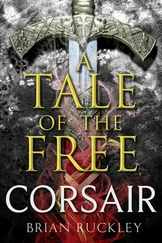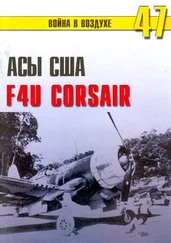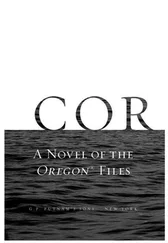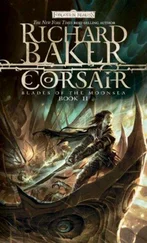‘And can he provide camels?’
‘He offers to trade our horses for camels. They can be left behind here, and he has cousins who will come to collect them later. In exchange he will provide us with camels from Talifat – apparently they are famous for their stamina – and supply saddles and teach us how to ride them. Also he will arrange that we have proper clothing for the desert. We must wear loose cotton gowns and cover our heads with cloths to keep off the sun. He says it would also be wise to leave behind our boots and shoes, and wear sandals.’
‘I’m not giving up my boots,’ interrupted Bourdon. ‘Everyone knows that the desert is full of poisonous insects and serpents. I don’t want to get bitten or stung.’
Hector hesitated. ‘Ask him if we can’t keep our horses. We might need them again on the far side of the desert.’
Dan translated his request to the old man and relayed his reply. ‘He agrees that a horse is capable of crossing the desert, but only if accompanied by a camel carrying water. That means six water skins for every horse, plus another camel to carry dried grass, grain and blocks of dried dates as horse feed. Even so, the horse will die if it goes lame, or if the camel falls sick. He recommends we take only camels.’
‘Tell him that we will follow his advice.’

A WEEK LATER, with Oued Noun far behind them, Hector was regretting that he had accepted the old man’s counsel. Riding a camel was uncomfortable. The creature’s loose-limbed gait meant that he spent most of each day swaying back and forth awkwardly in an lurching rhythm. If he dismounted to walk beside the animal, he had to beware of the creature’s foul breath and moody temperament. Before leaving the village Ibrahim, the guide’s grandson, had shown them how to make the camels kneel, how to hobble them loosely so they could graze when there was any vegetation, and to tie them more closely by the knee when they camped for the night. ‘Place your trust in Allah, but tie up your camel,’ the young man had joked. But Hector still found the camels to be fractious and awkward to control. He would much have preferred to be mounted on a horse as he tried to ride at the flanks and rear of the coffle in case there was an attack from the mysterious Tooarick of whom the merchants were so fearful. He had expected the caravan to march as a long single column. Instead it advanced on a broad front, walking slowly across the bleak, flat landscape, each merchant and his slaves and servants attending to their own band of camels. Out in front rode Abdullah, the old guide, accompanied by his grandson. Each night when the caravan halted at a waterhole, Hector and the others would join the two amazigh at their campfire. The merchants completely ignored them.
‘My horse could have come this far without any difficulty,’ Hector confided to Ibrahim one evening. It had been natural to strike up a friendship with the cheerful and enthusiastic young man. ‘Each night we have arrived at a waterhole where the animals could drink. My arms are aching from trying to steer my camel in the right direction.’
‘There’s a saying that “the camel driver has his plans – and the camel has his”,’ was the light-hearted reply, ‘and this is only the early stage of our crossing. Later we will find water only every three days, or less often. And there are places where the surface of the desert is dangerous. The ground seems firm and hard, but it is only a thin crust. It gives way suddenly. A horse would break its leg in the hole, but a camel is more flexible. It can be pulled out with ropes, and continue on the journey.’ The young man tossed another dry branch from a thorn bush on to the fire and watched the sparks fly up into the night air. ‘Besides, my grandfather tells me that tomorrow we will have the irifi, the desert wind. He predicts that it will only last a few hours but it will make life difficult for our beasts. You should warn your companions that they will need their sheshs, their turbans.’
The sky dawned an ominous reddish grey. The caravan had barely begun its march when the first puffs of a gentle breeze began to lift the dust and sand into little spirals that skittered and twisted across the ground before collapsing and disappearing. By mid-morning the wind had increased until sand particles were blowing painfully into the men’s faces, making them sneeze and their eyes water. They were obliged to dismount from their camels, wrap cloths about their heads, and plod onward, heads bent low. Beside them the camels walked on, their nostrils narrowed and their eyes half-closed behind their long eyelashes. Until evening the irifi swirled around them, rising in strength to a full gale. Visibility fell to less than twenty paces, and the coffle huddled in a dense mass, fearful of losing touch with one another. A horse in such hostile conditions, Hector reflected, would have refused to advance and turned to stand miserably with its tail against the scouring wind.
‘Now I know why Abdullah doesn’t need good eyesight to lead the caravan,’ Hector commented to Ibrahim as they rested by the campfire. ‘I could scarcely raise my head against the sand blast. When I did, it was impossible to see anything.’
‘It could have been much worse. The irifi sometimes blows for five or six days, and much more strongly. Entire caravans have been known to perish, unable to move forward or backward until buried by the sand. That was what happened to my father. He was leading a coffle which the wind destroyed. We never found his body. I expect he is lying somewhere beneath the surface of the desert, a dried corpse along with his camels and the merchants he was guiding. Sometimes, years later, the wind blows away the sand again. So maybe he will be found, and we can give him a proper burial.’
Picking up two metal bowls, Ibrahim rose to his feet and said, ‘You and Dan can give me a hand. In less than a week we begin the most difficult stage of our journey. There will be no water for ten days and not a blade of grass nor a single leaf for our camels to eat. There’s an old jmel among our beasts which will not survive the ordeal. It is better we put it to good use now.’
He led the way to where the camels were hobbled. Singling out the animal he wanted, he led it a little distance away. There he made the beast kneel, and showed Dan how to pull the halter so that the camel turned its head to one side, stretching its neck in a curve. While Hector held the bowl beneath the artery, Ibrahim expertly cut the animal’s neck so that the blood splashed into the receptacle. ‘Put the bowl on the embers of the campfire,’ he told Hector. ‘In a few minutes the blood will thicken to a good soup. Dan and I will start to deal with the carcass. Tonight we feast on the entrails. Tomorrow we’ll begin to dry the meat in the sun, and we’ll save the hide for when it’s needed.’ He slid his knife blade into the dead camel’s gut, exposing a globular paunch which he carefully cut open. Inside was a thick green gruel, foul smelling with lumps. Taking the second bowl he scooped out the contents. ‘This too can be cooked for our supper,’ he said. ‘It has already been eaten by the jmel. But we can enjoy it too. In the desert nothing goes to waste.’
A week later the camel hide was put to use when Bourdon reluctantly agreed to abandon his battered footwear despite his fear of snakes and biting insects. By then his boots had been cut to shreds on flinty gravel. Ibrahim expertly cut double-soled sandals for him using the skin of the dead jmel whose meat already hung in strips from their pack saddles, drying in the sun. They were now in the most difficult sector of the desert crossing, a desiccated brown expanse of sand and rocky outcrops which, in the simmering heat haze, could be mistaken for the roofs of distant towns. At its worst the heat was so intense that the coffle had to travel by night. The men spent the days sheltering from the sun under strips of cloth or in the shadow of piles of camel packs. The sand became so hot that it was painful to stand barefoot, and their precious water skins daily grew more flabby as their contents dwindled through evaporation. Finally, when it seemed that the ordeal would never end, Abdullah declared that they had passed the halfway mark. Hector, who had long since given up using the qibla to trace the direction of travel, was amazed by the blind man’s certainty.
Читать дальше









